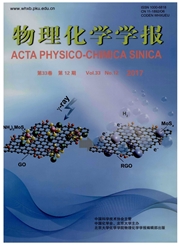

 中文摘要:
中文摘要:
由于能源危机与环境问题,全球能源的消耗正逐渐从传统化石能源转向其它清洁高效能源。高效清洁能源的存储是电动汽车和智能电网的关键技术,对新能源、新材料和新能源汽车国家战略新兴产业的发展具有重要意义。锂离子电池是目前广泛应用的一种能源存储器件。电动汽车和智能电网对能量密度、功率密度、循环寿命和成本等方面的要求越来越高,传统的锂离子电池面临巨大挑战,发展下一代能源存储技术迫在眉睫。高能量密度的锂硫电池和锂空气电池,低成本、高安全性的室温钠离子电池受到了越来越多的关注。本文简要总结了近年来锂硫电池、锂空气电池和钠离子电池及其关键电极材料的研究进展,并对这些新型能源存储技术存在的问题和未来的前景做出了分析和展望。
 英文摘要:
英文摘要:
In response to energy shortages and environmental concerns, global energy consumption is transitioning from a reliance on fossil fuels to multiple, clean and efficient power sources. Energy storage is central to the development of electric vehicles and smart grids, and hence to the emerging nationally strategic industries. Today, lithium-ion batteries(LIBs) are among the most widely used energy storage devices in daily life, but they face a severe challenge to meet the rigorous requirements of energy/power density, cycle life and cost for electric vehicles and smart grids. The search for next-generation energy storage technologies with large energy density, long cycle life, high safety and low cost is vital in the post-LIB era. Consequently, lithium-sulfur and lithium-air batteries with high energy density, and safe, low-cost room-temperature sodium-ion batteries,have attracted increasing interest. In this article, we briefly summarize recent progress in next- generation rechargeable batteries and their key electrode materials, with a particular focus on Li-S, Li-air, and Na-ion batteries. The prospects for the future development of these new energy storage technologies are also discussed.
 同期刊论文项目
同期刊论文项目
 同项目期刊论文
同项目期刊论文
 SnO2-based composite coaxial nanocables with multi-walled carbon nanotube and polypyrrole as anode m
SnO2-based composite coaxial nanocables with multi-walled carbon nanotube and polypyrrole as anode m Insight into the improvement of rate capability and cyclability in LiFePO(4)/polyaniline composite c
Insight into the improvement of rate capability and cyclability in LiFePO(4)/polyaniline composite c 期刊信息
期刊信息
